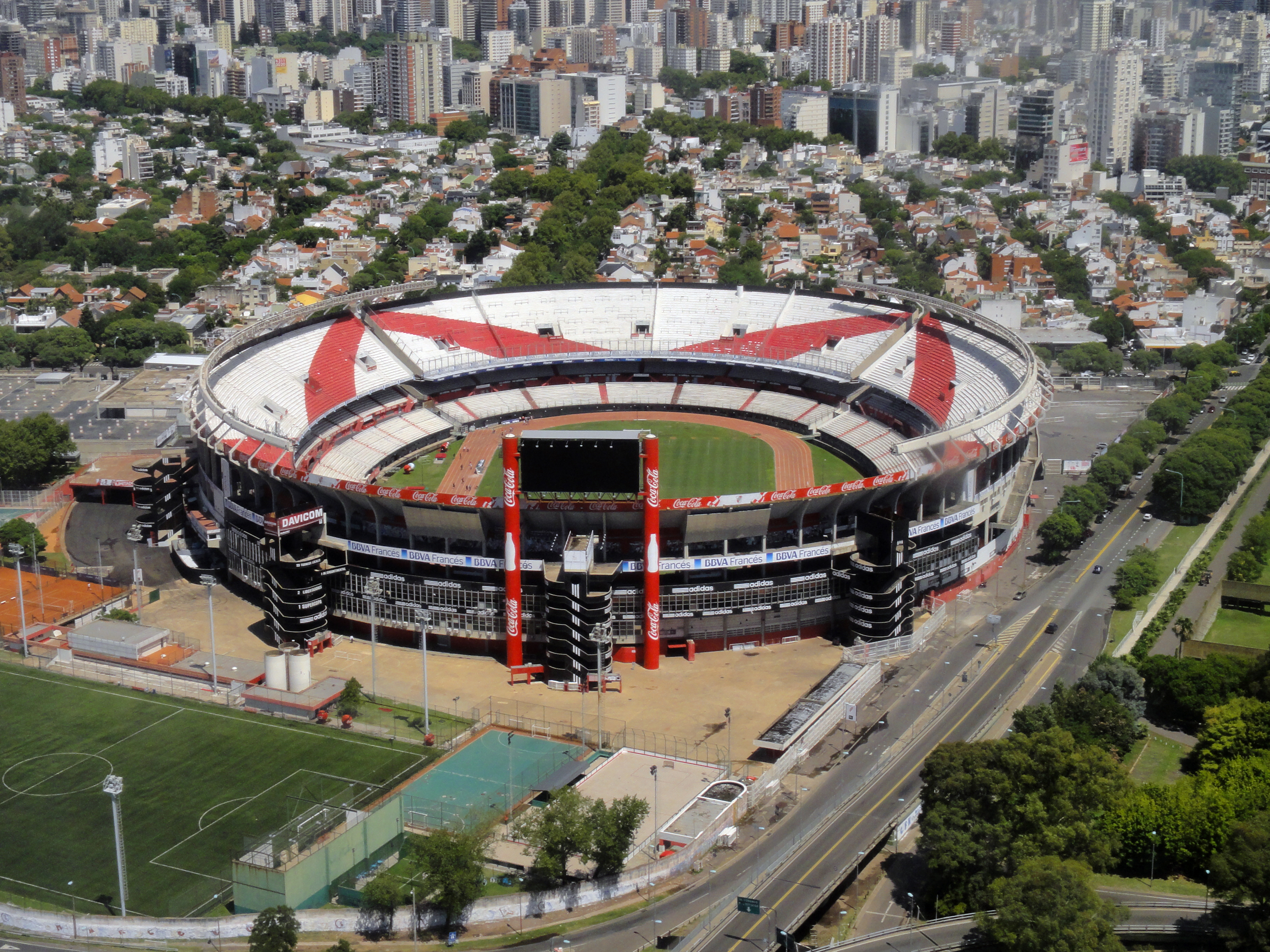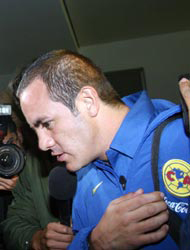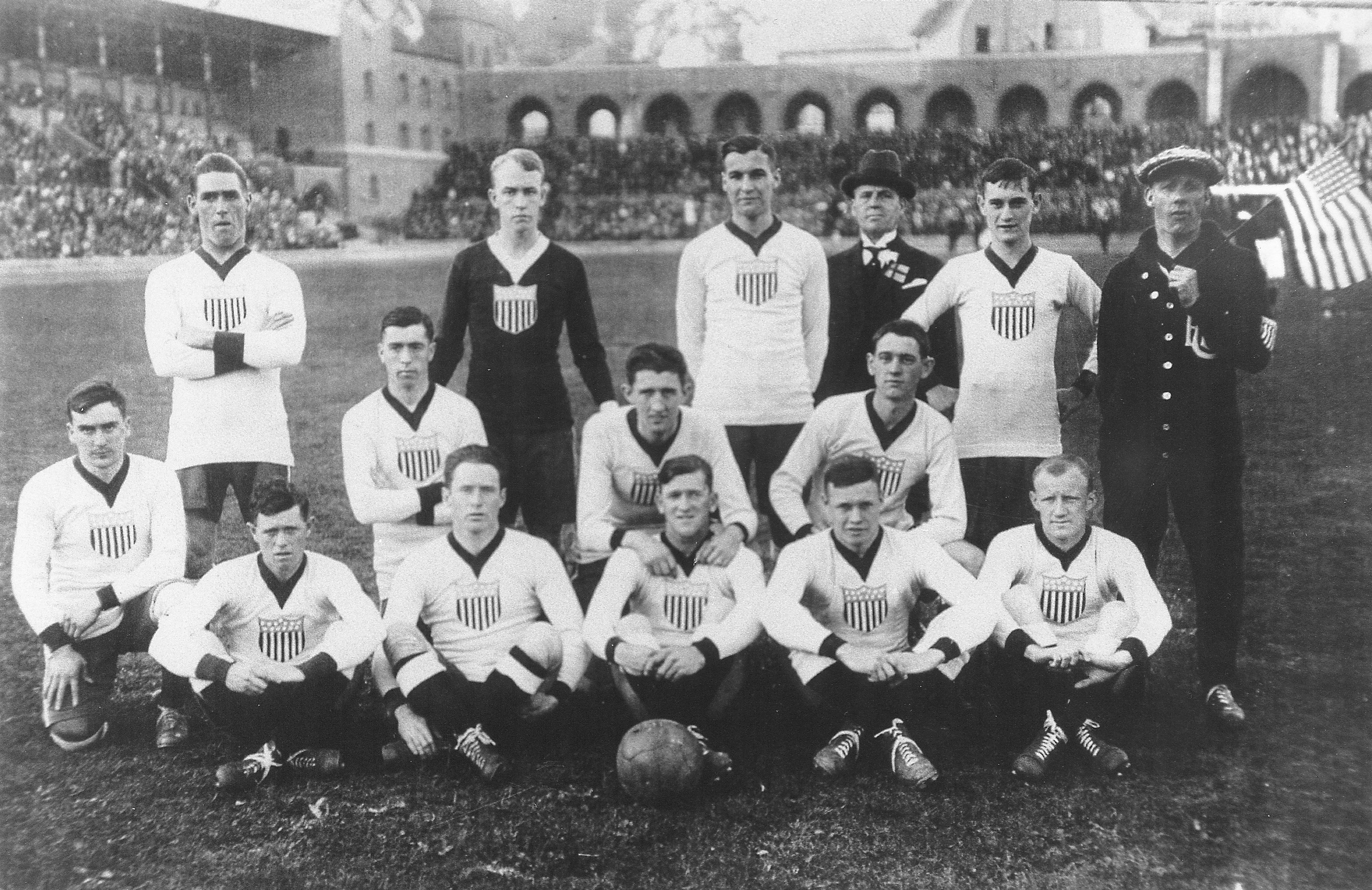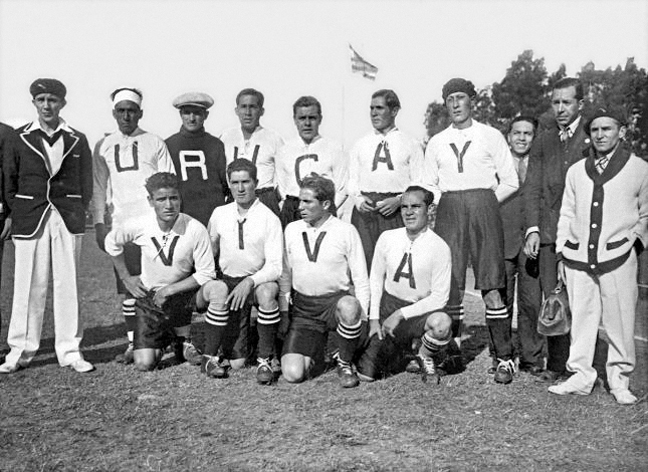|
1999 FIFA Confederations Cup Final
The 1999 FIFA Confederations Cup Final was a football match to determine the winners of the 1999 FIFA Confederations Cup, was the fourth FIFA Confederations Cup, and the second organised by FIFA, a quadrennial international men's football tournament organised by FIFA. The match was held at the Estadio Azteca in Mexico City, on 4 August 1999, and was contested by the winners of the semi-finals, Mexico and Brazil. Mexico won the match 4–3, earning their first title in history and being the first CONCACAF team to win the tournament. Background This was the first time Mexico had defeated Brazil in a FIFA tournament final. Prior to the tournament, Mexico never won a major FIFA tournament, but came close to in the second edition (also the last edition) of the King Fahd Cup, ending up in third place, under Denmark and Argentina. For Brazil, this was their second and consecutive final after beating Australia in the 1997 Confederations Cup Final, making them the first team to win the ... [...More Info...] [...Related Items...] OR: [Wikipedia] [Google] [Baidu] |
Estadio Azteca
Estadio Azteca () is a multi-purpose stadium located in Mexico City. It is the official home of Association football, football clubs Club América and Cruz Azul as well as the Mexico national football team. The stadium sits at an altitude of above sea level. With an official capacity of 87,523, it is the largest stadium in Mexico and Latin America. The National Football League (NFL) features one game at Estadio Azteca per season as a part of their NFL International Series, International Series. Regarded as one of the most famous and iconic football stadiums in the world, it is the first to have hosted two FIFA World Cup Finals; in the 1970 FIFA World Cup, 1970 World Cup 1970 FIFA World Cup Final, Final, Brazil national football team, Brazil defeated Italy national football team, Italy 4–1, and in the 1986 FIFA World Cup, 1986 World Cup 1986 FIFA World Cup Final, Final, Argentina national football team, Argentina defeated West Germany national football team, West Germany 3–2 ... [...More Info...] [...Related Items...] OR: [Wikipedia] [Google] [Baidu] |
Argentina National Football Team
The Argentina national football team represents Argentina in men's international football and is administered by the Argentine Football Association, the governing body for football in Argentina. Nicknamed ''La Albiceleste'' ('The White and Sky Blue'), they are the reigning world champions, having won the most recent World Cup in 2022. Overall, Argentina has appeared in a World Cup final six times; a record surpassed only by Brazil and Germany; Argentina played in the first ever final in 1930, which they lost 4–2 to their South American rival Uruguay. Argentina's next final appearance came 48 years later, in 1978, when the team captained by Daniel Passarella defeated the Netherlands 3–1 in extra time, being crowned world champions for the first time. Captained by Diego Maradona, Argentina won their second World Cup eight years later, in 1986, with a 3–2 final victory over West Germany. They reached the final once more under the guidance of Maradona, in 1990, but ... [...More Info...] [...Related Items...] OR: [Wikipedia] [Google] [Baidu] |
Serginho (footballer, Born 1971)
Sérgio Cláudio dos Santos (born 27 June 1971), better known as Serginho, is a Brazilian former professional footballer who played as a left-back and left winger. Known for his energetic attacking runs down the wing, he won the Champions League twice (in 2003 and 2007), as well as the Serie A title (in 2003–04), among other trophies with A.C. Milan. At international level, he also represented Brazil at the 1999 FIFA Confederations Cup and was part of the team that won the 1999 Copa América. Post retirement, he has acted as manager and agent for former teammate Dida. Club career Serginho initially began his professional footballing career in his home country and played for clubs Cruzeiro, Bahia and São Paulo. He moved to Italian side A.C. Milan in 1999, where he was initially a fringe player, starting on the bench but often being the first-choice substitute. The apex of Serginho's Milan career was when he scored a goal and contributed three assists in a 6–0 thrashing of ... [...More Info...] [...Related Items...] OR: [Wikipedia] [Google] [Baidu] |
Cuauhtémoc Blanco
Cuauhtémoc Blanco Bravo (; born 17 January 1973) is a Mexican politician and former professional footballer who is the current Governor of Morelos under the coalition '' Juntos Haremos Historia''. He formerly served as the municipal president of Cuernavaca, Morelos. As a footballer, Blanco was known for his attacking ability and played most of his career as a deep-lying forward and his last years as an attacking midfielder. Blanco is considered to be one of the greatest Mexican footballers of all time, as well as one of the best penalty takers of all time. Early life Blanco was born in Mexico City, in the district of Tlatilco, but grew up in Tepito. Born to Faustino Blanco and Hortensia Bravo, he was named after the last Aztec emperor Cuauhtémoc, in which the name means "one who has descended like an eagle". Football career Beginnings Blanco started his career with América in 1992, where he won various awards, both team-based and individual, and had various loan stints ... [...More Info...] [...Related Items...] OR: [Wikipedia] [Google] [Baidu] |
José Manuel Abundis
José Manuel Abundis Sandoval (born 11 June 1973) is a Mexican former professional footballer who played as a forward. Career Abundis last played for Querétaro F.C. in 2008. He made his debut for the New England Revolution in Major League Soccer on 30 September 2006, scoring the second goal in a 3–1 victory against Columbus Crew SC, but was not re-signed at the end of the season, following disputes with coach Steve Nicol over playing time. He represented Mexico at the 1996 Summer Olympics and the 1999 FIFA Confederations Cup. He scored 3 goals in the tournament, including one in the final. Abundis served as head coach of Atlanta Silverbacks during the 2011 North American Soccer League season. He was fired by Atlanta on 7 November 2011. On 18 June 2019. Abundis was appointed as head coach of Petroleros de Poza Rica, a team that plays in the Mexican Third Division. Career statistics International goals :''Scores and results list Mexico's goal tally first.'' Honours ... [...More Info...] [...Related Items...] OR: [Wikipedia] [Google] [Baidu] |
Miguel Zepeda
Miguel Ángel Zepeda Espinoza (born 25 May 1976) is a Mexican former professional footballer who played as a midfielder. Career Zepeda made his professional debut on November 13, 1996 in 2-2 draw against Chivas. He has played most of his career with Atlas, from 1996 to 2001. In the Invierno 2001 he transferred to Cruz Azul. With Cruz Azul Zepeda spent 4 short tournaments. In the 2003 Apertura Zepeda transferred to Monarcas Morelia, where he did not have any success. In the 2004 Clausura Zepeda he transferred to Toluca, where Toluca got eliminated in the semifinals by Guadalajara. Zepeda went back with Cruz Azul for two more seasons (Apertura 2004), (Clausura 2005). He later transferred to Santos Laguna, but he did not have much success, so he transferred to America. With Club América he only played in five games and did not score any goals, but won the 2006 CONCACAF Cup. Zepeda transferred to San Luis for the 2006 Apertura, where once again he did not have much succe ... [...More Info...] [...Related Items...] OR: [Wikipedia] [Google] [Baidu] |
Golden Goal
The golden goal or golden point is a rule used in association football, lacrosse, field hockey, and ice hockey to decide the winner of a match (typically a knock-out match) in which scores are equal at the end of normal time. It is a type of sudden death. Under this rule, the game ends when a goal or point is scored; the team that scores that goal or point during extra time is the winner. Introduced formally in 1993, though with some history before that, the rule ceased to apply to most FIFA-authorized football games in 2004. The similar silver goal supplemented the golden goal between 2002 and 2004. The golden goal used to be played in NCAA matches up to 2021 but is still used in FIH sanctioned field hockey games. A related concept, the golden point, is used in National Rugby League games. A similar golden goal rule is also used in all National Hockey League (NHL) overtime games (followed by a shootout if needed, in the regular season and preseason); however, the term "golden ... [...More Info...] [...Related Items...] OR: [Wikipedia] [Google] [Baidu] |
New Zealand National Football Team
The New Zealand men's national football team ( mi, Tīma hoka a-motu o Aotearoa) represents New Zealand in men's international football competitions. The team is governed by the governing body for football in New Zealand, New Zealand Football (NZF), which is currently a member of FIFA and Oceania Football Confederation (OFC). The team's official nickname is the All Whites ( mi, Ōmā). New Zealand is a five-time OFC champion. The team represented New Zealand at the FIFA World Cup tournaments in 1982 and 2010, and the FIFA Confederations Cup tournaments in 1999, 2003, 2009 and 2017. Because most New Zealand football clubs are semi-professional rather than fully professional, most professional New Zealand footballers play for clubs in English-speaking countries such as England, the United States and Australia. However, there are also New Zealand footballers who now play for clubs in European league such as Italy, Denmark, and Turkey. History Early years New Zealand's first i ... [...More Info...] [...Related Items...] OR: [Wikipedia] [Google] [Baidu] |
Germany National Football Team
The Germany national football team (german: link=no, Deutsche Fußballnationalmannschaft) represents Germany in men's international football and played its first match in 1908. The team is governed by the German Football Association (''Deutscher Fußball-Bund''), founded in 1900. Between 1949 and 1990, separate German national teams were recognised by FIFA due to Allied occupation and division: the DFB's team representing the Federal Republic of Germany (commonly referred to as West Germany in English between 1949 and 1990), the Saarland team representing the Saar Protectorate (1950–1956) and the East Germany team representing the German Democratic Republic (1952–1990). The latter two were absorbed along with their records; the present team represents the reunified Federal Republic. The official name and code "Germany FR (FRG)" was shortened to "Germany (GER)" following reunification in 1990. Germany is one of the most successful national teams in international compe ... [...More Info...] [...Related Items...] OR: [Wikipedia] [Google] [Baidu] |
1997 FIFA Confederations Cup
The 1997 FIFA Confederations Cup was the first Confederations Cup to be organised by FIFA. The tournament had previously been played in 1992 and 1995 as the King Fahd Cup. This edition of the tournament was hosted by Saudi Arabia, as with the previous editions, in December 1997 and was the first to feature representatives from all of the FIFA confederations. It was won by Brazil, who beat Australia 6–0 in the final. After winning the 1997 tournament, Brazil became the first country to be the reigning champion of both major FIFA tournaments (the World Cup and the Confederations Cup), as well as champion of their respective confederation by winning the 1997 Copa América. This feat has since been accomplished once by France, victorious in the 1998 World Cup, UEFA Euro 2000 and the 2001 FIFA Confederations Cup. Qualified teams 1Germany, the UEFA Euro 1996 winner, declined to participate. 2The United Arab Emirates was awarded a spot in the competition because Saudi Arabia had ... [...More Info...] [...Related Items...] OR: [Wikipedia] [Google] [Baidu] |
United States Men's National Soccer Team
The United States men's national soccer team (USMNT) represents the United States in men's international soccer competitions. The team is controlled by the United States Soccer Federation and is a member of FIFA and CONCACAF. The U.S. team has appeared in eleven FIFA World Cups, including the first in 1930, where they reached the semi-finals to finish third, the best result ever by a team from outside UEFA and CONMEBOL. They returned in 1934 and 1950, defeating England 1–0 in the latter, but did not qualify again until 1990. As host in 1994, the U.S. received an automatic berth and lost to Brazil in the round of sixteen. They qualified for the next five World Cups (seven consecutive appearances (1990–2014), a feat shared with only seven other nations), becoming one of the tournament's regular competitors and often advancing to the knockout stage. The U.S. reached the quarter-finals in 2002, and controversially lost to Germany. In the 2009 Confederations Cup, the Am ... [...More Info...] [...Related Items...] OR: [Wikipedia] [Google] [Baidu] |
Bolivia National Football Team
The Bolivia national football team ( es, Selección de fútbol de Bolivia), also known as ''La Verde'', has represented Bolivia in international football since 1926. Organized by the Bolivian Football Federation (FBF), it is one of the ten members of FIFA's South American Football Confederation ( CONMEBOL). After playing in the 1930 and 1950 World Cups, they have qualified just once, in 1994, where they were eliminated in the group stage. Bolivia have never advanced past the first round of any World Cup, and have only scored one goal, in 1994. Despite their World Cup performances, Bolivia won the Copa América at home in 1963, and finished runners-up in 1997, which they also hosted. At the 2015 Copa América in Chile, they advanced to the quarter-finals for the first time since 1997, after defeating Ecuador 3–2. This also ended a winless streak in the Copa América, with their last win being on 28 June 1997, when they defeated Mexico 1–0 in the semi-finals. History Bo ... [...More Info...] [...Related Items...] OR: [Wikipedia] [Google] [Baidu] |
_-_Mexico_City_Tram_Line.jpg)






